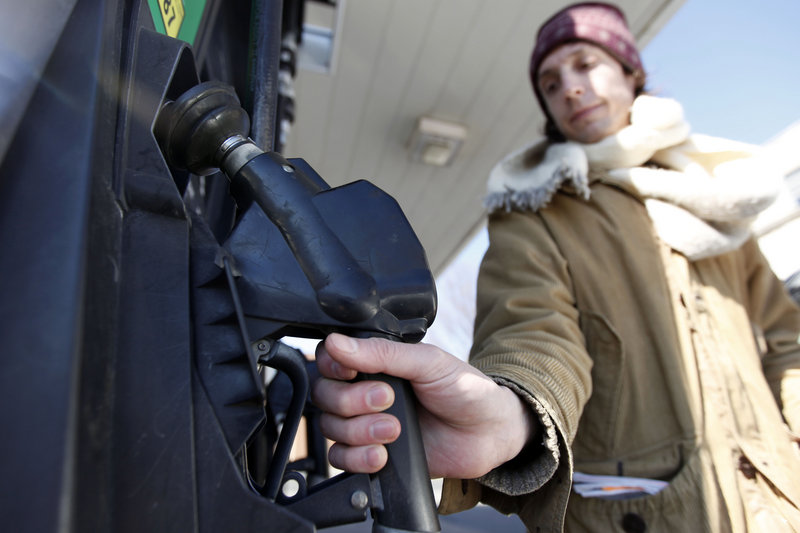The first major protests to hit an OPEC country put the oil industry on edge Monday, sending crude prices jumping and raising speculation about the use of emergency oil reserves that have only been touched twice in two decades.
In addition to Libya, the industry is closely watching protests in Algeria, Bahrain and Iran, the second-largest crude exporter in OPEC behind Saudi Arabia.
“The concerns in the market go beyond Libya,” said Victor Shum, an energy analyst with Purvin & Gertz in Singapore. “It’s unlikely we’re going to see any meaningful disruption of oil from the Middle East or North Africa, but the spread of this unrest has raised anxieties.”
Libya is more important to the oil industry than Egypt or Tunisia, scenes of the previous uprisings in North Africa. Oil passes through Egypt, where protesters recently forced out longtime ruler Hosni Mubarak, but Egypt is not an exporter. Tunisia is a minor exporter.
Libya exports 1.1 million barrels of crude a day from production of 1.6 million barrels — ranking it about 17th among world oil producers. And it has the largest proven oil reserves in Africa.
The United States, the world’s largest consumer of oil, does not import any petroleum from Libya. But disruptions elsewhere can raise the price of oil worldwide.
Even more worrisome for oil markets is the potential for instability to spread to other countries in the Organization of Petroleum Exporting Countries, especially Saudi Arabia and Kuwait.
Saudi Arabia has not been the scene of protests, but the kingdom sits atop the world’s largest reserves of conventional crude.
“The elephant in the room that has the potential to really ignite the markets is Saudi Arabia,” said senior commodity analyst Edward Meir at MF Global in New York.
Oil prices jumped $4.03 a barrel on Monday, with benchmark crude for March delivery at $90.23 in electronic trading on the New York Mercantile Exchange. Regular trading in U.S. markets was closed for the Presidents Day holiday, and the thin trading volumes had the potential to amplify price fluctuations.
Some in the industry had their eye on world oil reserves that can be tapped if production is threatened or curtailed. The reserves have only been opened twice — after Hurricane Katrina in 2005 and the first Gulf War in 1991.
David Fyfe, head of the oil industry and markets division at the International Energy Agency, said the agency’s member countries have reserves of 1.6 billion barrels of oil — equivalent to the amount of crude the United States imports in almost six months.
The agency’s members are mainly oil-consuming industrial nations such as the United States, Japan, Britain and Germany.
Using government oil supplies to stabilize the oil market is “very much a last resort, but it’s worth pointing out that it exists and has been used before when supplies have been disrupted,” he said.
Fyfe said there are differences between now and the last time the world experienced widespread oil shortages and price increases, in 2008, including more spare capacity and greater OPEC production.
U.S. oil companies were barred from doing business in Libya until the United States lifted its embargo in 2004. Since then, contracts between Libya and foreign oil companies have been frustrating for both sides, said PFC Energy analyst David Kirsch.
The amount of oil and natural gas discovered has been disappointing, and oil companies have felt that the contracts were not generous enough, given the limited size of discoveries, he said.
If the Gadhafi government falls, oil companies may find that the new government demands terms even more favorable to Libya and less favorable to the oil companies, Kirsch said.
U.K.-based BP and Germany’s Wintershall temporarily suspended operations in Libya on Monday, while Italy’s Eni said production continued normally. Some firms also began evacuating foreign employees.
BP evacuated about 40 expatriate staff and their families, halting operations just four years after the company returned to Libya following a 30-year hiatus. In 2007, BP signed a deal worth at least $900 million to explore in Libya.
Copy the Story Link
Send questions/comments to the editors.



Success. Please wait for the page to reload. If the page does not reload within 5 seconds, please refresh the page.
Enter your email and password to access comments.
Hi, to comment on stories you must . This profile is in addition to your subscription and website login.
Already have a commenting profile? .
Invalid username/password.
Please check your email to confirm and complete your registration.
Only subscribers are eligible to post comments. Please subscribe or login first for digital access. Here’s why.
Use the form below to reset your password. When you've submitted your account email, we will send an email with a reset code.